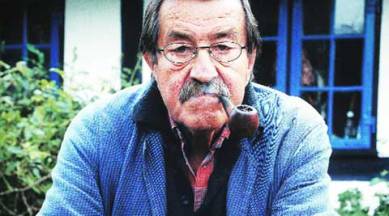📣 For more lifestyle news, click here to join our WhatsApp Channel and also follow us on Instagram
Foreign Correspondent: The Kolkata which inspired Gunter Grass
The Kolkata which inspired Gunter Grass was a place where you could reach out and touch life.

From the earliest colonials to Malcolm Muggeridge and Desmond Doig of The Statesman, visitors to Kolkata who chose to linger have tended to chronicle their experiences. Perhaps, it is the ease with which you can reach out and touch life in the city. Günter Grass, the last of the great foreign correspondents of Kolkata, was fascinated by the paradoxes in plain sight. A writer who distrusted the Western conception of progress, he appreciated the city’s refusal to conform to Western standards. Kolkata, birthplace of the wogs (Western-oriented gentlemen), used to dismiss them in terms like: “Eats puffed rice, shits sandwiches.” But the revolution was impermanent.
monthly limit of free stories.
with an Express account.
Paradoxically, Grass had written of Kolkata as “a pile of shit” which nevertheless showed up his own culture: “Set down one single slum hovel, as authentic as want has made it, right next to the glassy arrogance of the Deutsche Bank (in Frankfurt), [and] beauty would at once be on the side of the hovel, and truth too, even the future.” Kolkata first appeared in Grass’s work in The Flounder, which has a slightly bizarre section set in the city. It was inspired by a visit in the 1970s and in the nation of hurt sentiments, it did not receive critical acclaim. He wrote his major work on Kolkata in the Eighties, when he was here to help direct the Bengali translation of his play, The Plebeians Rehearse the Uprising. Zunge Zeigen (Show your Tongue, a reference to Kali Puja) is his love song to the city, with about 100 pages each of diary notings and charcoal-and-ink sketches, plus a poem.
The book is the second great illustrated diary from the east, preceded by Somnath Hore’s Tebhaga, which recounts the artist’s involvement in the communist land reform movement. As the diary suggests, for Grass, the literary was the political. While in the city, he intervened on behalf of Daud Haider, one of the first targets of blasphemy law in Bangladesh, who was taken into protective custody in 1974 for publishing a poem which allegedly insulted multiple religions with secular even-handedness. Smuggled out to Dhaka airport, Haider had landed in Kolkata with a few rupees in his pocket. When repatriation proceedings loomed a decade later, Grass arranged to take the stateless poet to Berlin, where he worked at Deutsche Welle, and still lives in exile.
On his last visit to Kolkata in 2005, Grass found signs of Western-inspired progress execrable, especially a flyover which slings traffic halfway across the city, from Park Circus to the Maidan. It cuts in half the view of some beautiful colonial and Sixties frontages. But it also brings the traveller up close and personal with them. You see signs of private life in India — unmentionables drying in apartment balconies, people being silently shouted at by their superiors in offices. That’s the paradox that repeatedly brought Grass to the city, to produce interesting work every time: in Kolkata, life in its beauty and disarming strangeness is always so close that you only have to reach out to touch it.
📣 For more lifestyle news, click here to join our WhatsApp Channel and also follow us on Instagram